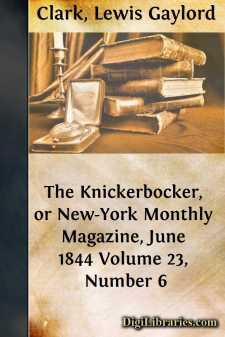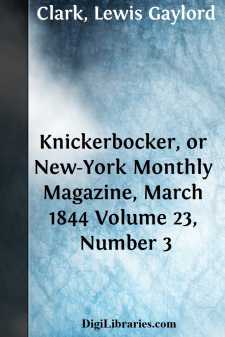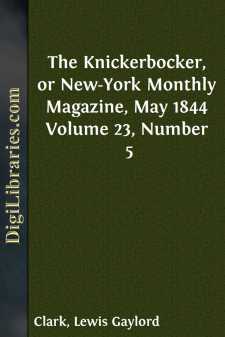Categories
- Antiques & Collectibles 13
- Architecture 36
- Art 48
- Bibles 22
- Biography & Autobiography 813
- Body, Mind & Spirit 142
- Business & Economics 28
- Children's Books 17
- Children's Fiction 14
- Computers 4
- Cooking 94
- Crafts & Hobbies 4
- Drama 346
- Education 46
- Family & Relationships 57
- Fiction 11829
- Games 19
- Gardening 17
- Health & Fitness 34
- History 1377
- House & Home 1
- Humor 147
- Juvenile Fiction 1873
- Juvenile Nonfiction 202
- Language Arts & Disciplines 88
- Law 16
- Literary Collections 686
- Literary Criticism 179
- Mathematics 13
- Medical 41
- Music 40
- Nature 179
- Non-Classifiable 1768
- Performing Arts 7
- Periodicals 1453
- Philosophy 64
- Photography 2
- Poetry 896
- Political Science 203
- Psychology 42
- Reference 154
- Religion 513
- Science 126
- Self-Help 84
- Social Science 81
- Sports & Recreation 34
- Study Aids 3
- Technology & Engineering 59
- Transportation 23
- Travel 463
- True Crime 29
Lewis Gaylord Clark
Lewis Gaylord Clark was a 19th-century American writer and editor best known for his long tenure as editor of the influential literary magazine "The Knickerbocker." He served as editor from 1834 to 1861, shaping the magazine's reputation for wit, humor, and literary quality. Clark also authored several works, including "Knickerbocker Sketch-Book" and "Glimpses of the Old World," which contained his travel writings and essays. His twin brother, Willis Gaylord Clark, was also a noted poet and journalist.
Author's Books:
Sort by:
THE PLAGUE AT CONSTANTINOPLE. BY AN EYE-WITNESS. In 1837 I was a resident in Galata, one of the faubourgs of Constantinople, sufficiently near the scenes of death caused by the ravages of the plague to be thoroughly acquainted with them, and yet to be separated from the Turkish part of the population of that immense city. It is not material to the present sketch to dwell upon the subject of my previous...
more...
This question has often been asked but seldom answered satisfactorily. Newspaper editors and correspondents have frequently attempted a practical elucidation of the mystery, by quoting from their own brains the rarest piece of absurdity which they could imagine, and entitling it ‘Transcendentalism.’ One good hit of this kind may be well enough, by way of satire upon the fogginess of certain writers...
more...
The following article has been compiled from the different works of Thomas Carlyle, and embodies all he has written, or at least published, about Napoleon Bonaparte. We offer it in the absence of a more elaborate work on this subject, which we hope one day to see from the pen of this gifted and earnest writer. It is a glimpse of the insight of the clearest-headed Seer of our age, into the noisiest...
more...




